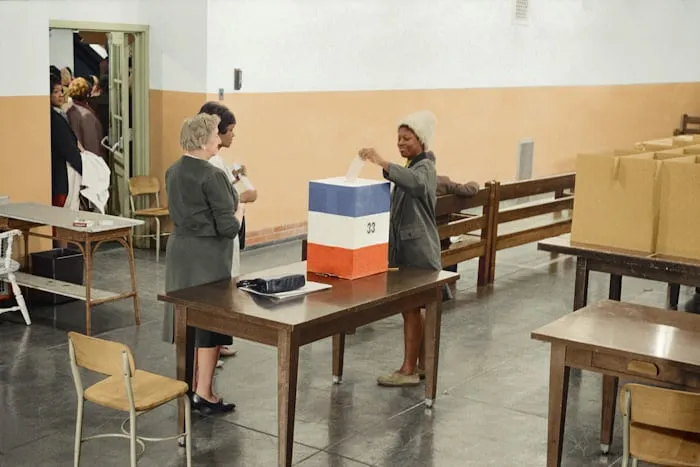Democracy, as a form of government, is the best comparatively. It affords the people to directly not only have their say but have their ways in deciding who to govern them. The people vote amongst themselves to lead them. It is thus defined as the government of the people by the people and for the people.
This is the ideal situation. Unfortunately, the reality is different in Nigeria. Many things are wrong with democracy in Nigeria. It has become the government of a few people for a selected few. When the leaders get to power, they begin to see the people as a conquered entity whom they are not answerable to in any way. In many instances, the leaders are blamed for these challenges, but I see it to be more of the fault of the people (followers) than that of the leaders. Whatever form of undemocratic principles orchestrated by the leader, he or she uses the people to pursue such an agenda.
The main problem with Nigeria's democracy is in the electoral system. In a working democracy, people should be free to elect their leaders without any hindrance. People should be able to vote for their preferred candidates and allow others to do the same. But this is not the case with Nigeria. Most Nigerians support their candidates aggressively. They want everybody to support whom they are supporting. The last general election was a good example. The supporters of the three major candidates detested seeing other candidates being supported in their respective strongholds. This is not in the interest of democracy.
In a working democracy, one out of 100 people shouldn't feel intimidated for supporting an opposing candidate to the candidate that the remaining 99 are supporting. If the reason for supporting a candidate is that they have a track record of good leadership qualities, it would have been better, but unfortunately, Nigerians majorly queue behind a candidate based on religious or ethnic affiliations. The leaders are aware of this, and they capitalize on it to divide the people against themselves in order to get to power.
In the last general election in Nigeria, the major candidates utilized this tool to their best abilities. Atiku expected victory from block votes from the north. Tinubu said it was the turn of his tribe and, by extension, his own turn. His people took it personal and fought against those that dare vote against him. Obi, on the other hand, tried playing the religion card mixed with ethnicity. At the end of it, the smarter person in the game won the race. Their candidacies were never about the betterment of the people's lives. It was about some personal ambitions. In all of these, the leaders and the system are a reflection of the people.
I have been following the political events for almost two decades, and I know many people that were critical of the leaders in the past but had the chance of attaining the leadership positions without effecting any change. It's a case of criticizing the lack of opportunity to partake in the spoil and not the lack of good governance for the people. I have seen people condemn election rigging in other parts of the country but silent about the one that happened in their domains because it was done to the advantage of their preferred candidates.
Taking all these into consideration, the country's democracy can't make any significant progress in as much as the leaders would always emerge from the people and not imported from another country or clime.
To correct these anomalies, what is needed is the orientation of the people. Nigerians must be ready for change before change can take place. Once the people are ready, they can achieve their aims by electing the right candidates into the parliament. The members of the parliament would then enact laws that would correct most of the fundamental problems. Once the people are ready, nobody can stop them. If a member of parliament is not cooperating, the constituents can recall him from the seat. By so doing, they would know that power in a nascent democracy truly belongs to the people. This is a good way to put in place a working system.
It is easier for a good system to handle a bad leader than a good leader achieving anything great with a bad system.
For Nigerian democracy to improve, the people must be ready to take responsibility and make sure that their voices are heard. Tribalism and religious affiliation should be discarded as reasons for supporting a leader.
